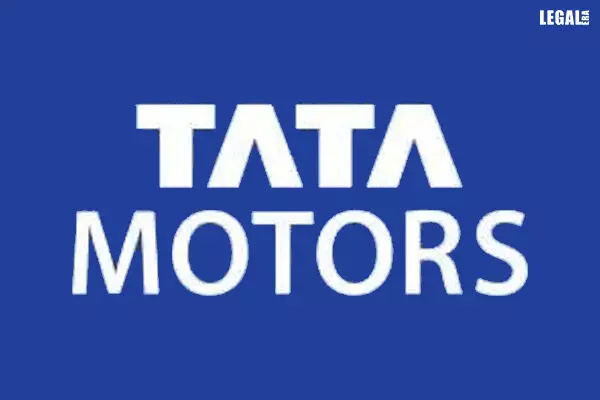- Home
- News
- Articles+
- Aerospace
- Agriculture
- Alternate Dispute Resolution
- Banking and Finance
- Bankruptcy
- Book Review
- Bribery & Corruption
- Commercial Litigation
- Competition Law
- Conference Reports
- Consumer Products
- Contract
- Corporate Governance
- Corporate Law
- Covid-19
- Cryptocurrency
- Cybersecurity
- Data Protection
- Defence
- Digital Economy
- E-commerce
- Employment Law
- Energy and Natural Resources
- Entertainment and Sports Law
- Environmental Law
- FDI
- Food and Beverage
- Health Care
- IBC Diaries
- Insurance Law
- Intellectual Property
- International Law
- Know the Law
- Labour Laws
- Litigation
- Litigation Funding
- Manufacturing
- Mergers & Acquisitions
- NFTs
- Privacy
- Private Equity
- Project Finance
- Real Estate
- Risk and Compliance
- Technology Media and Telecom
- Tributes
- Zoom In
- Take On Board
- In Focus
- Law & Policy and Regulation
- IP & Tech Era
- Viewpoint
- Arbitration & Mediation
- Tax
- Student Corner
- AI
- ESG
- Gaming
- Inclusion & Diversity
- Law Firms
- In-House
- Rankings
- E-Magazine
- Legal Era TV
- Events
- News
- Articles
- Aerospace
- Agriculture
- Alternate Dispute Resolution
- Banking and Finance
- Bankruptcy
- Book Review
- Bribery & Corruption
- Commercial Litigation
- Competition Law
- Conference Reports
- Consumer Products
- Contract
- Corporate Governance
- Corporate Law
- Covid-19
- Cryptocurrency
- Cybersecurity
- Data Protection
- Defence
- Digital Economy
- E-commerce
- Employment Law
- Energy and Natural Resources
- Entertainment and Sports Law
- Environmental Law
- FDI
- Food and Beverage
- Health Care
- IBC Diaries
- Insurance Law
- Intellectual Property
- International Law
- Know the Law
- Labour Laws
- Litigation
- Litigation Funding
- Manufacturing
- Mergers & Acquisitions
- NFTs
- Privacy
- Private Equity
- Project Finance
- Real Estate
- Risk and Compliance
- Technology Media and Telecom
- Tributes
- Zoom In
- Take On Board
- In Focus
- Law & Policy and Regulation
- IP & Tech Era
- Viewpoint
- Arbitration & Mediation
- Tax
- Student Corner
- AI
- ESG
- Gaming
- Inclusion & Diversity
- Law Firms
- In-House
- Rankings
- E-Magazine
- Legal Era TV
- Events
Arbitral Tribunal Orders West Bengal Government to Pay Tata Motors Rs.766 Crores For Scrapping Nano Car Project in Singur

Arbitral Tribunal Orders West Bengal Government to Pay Tata Motors Rs.766 Crores For Scrapping Nano Car Project in Singur
In 2008, the company was forced to abandon the construction of its factory and shifted to Gujarat
An arbitral tribunal has awarded Rs.766 crores as compensation to Tata Motors Limited to be paid by the West Bengal government. This is to cover the capital losses incurred by the Indian multinational automotive company, whose plans were scrapped to manufacture Nano cars in Singhur district.
The bench comprising former Supreme Court Judge, Justice VS Sirpurkar and former Calcutta High Court Judges, Justice Aloke Chakrabarti and Justice Jayanta Kumar Biswas also awarded Tata Motors Rs.1 crore to be recovered from the West Bengal Industrial Development Corporation (WBIDC) towards costs for the arbitration proceedings.
The tribunal held that till actual recovery, Tata Motors was entitled to recover a sum of Rs.765.78 crores with interest at the rate of 11 percent per annum from 1 September 2016 from the WBIDC.
The matter pertains to the land acquired by the West Bengal government, then led by the Communist Party of India (Marxist). The space in Singur was then handed over to Tata Motors to produce Nano cars.
However, in 2008, Tata Motors was forced to abandon the construction of its car factory and shifted to Gujarat. It was due to the anti-land acquisition protests in 2011 spearheaded by Mamata Banerjee, who gained power of the State and became the chief minister.
The Supreme Court in 2016, ruled that the land acquisition was "grossly perverse and illegal" in view of non-compliance with provisions of the Land Acquisition Act.
This was after the West Bengal government (then formed by the Trinamool Congress Party) changed its stance and argued before the apex court that the State's land acquisition (under the previous regime) was illegal.
Thereafter, Tata Motors pursued arbitration proceedings based on its lease agreement with the previous State government.
The tribunal has now ruled in favor of Tata Motors.
Tata Motors was represented by a team from Avijit Deb Partners, a Kolkata-based law firm. It was led by senior partner advocate Avijit Deb. The matter was argued by senior advocates Sudipto Sarkar and Siddharth Mitra. Others on the team included advocates Soumitra Datta, Deepan Kumar Sarkar, and Ananya Sinha.
A team from JSA Advocates & Solicitors led by partner Sidharth Sethi appeared for the WBIDC.



